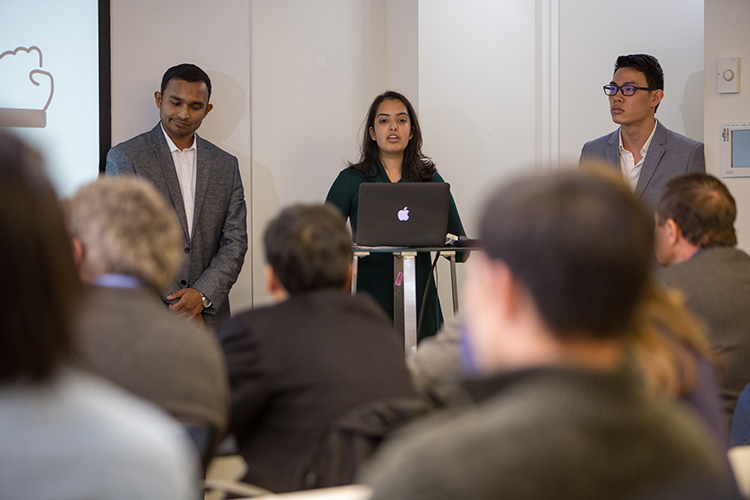The aim of this blog is to show what’s happening at the Center for Neurotechnology among its faculty, student and staff members. To learn more about the center and its work, visit our Feature Stories page.
-
UW DO-IT Scholars visit the CNT

Over 40 high school and college students with disabilities recently visited the Center for Neurotechnology (CNT) from the Disabilities, Opportunities, Internetworking and Technology (DO-IT) Center at the University of Washington (UW). The students were part of the DO-IT Scholars Summer Study program at the UW, and their visit to the CNT happened to coincide with DO-IT’s 25th Anniversary
-
Inviting neural engineers to proactively consider the ethical implications of their work

Although most people are somewhat familiar with the concept of ethics, which describes fundamental principles of decent human conduct, the idea of ethics as applied to neural engineering, or “neuroethics,” might be less familiar. As neural engineering technology becomes increasingly prolific, it is imperative that future engineers, researchers and ethicists recognize how these devices can
-
Engineering data security for brain-computer interfaces

A new type of wireless transceiver is on its way to making data transmitted by brain-computer interfaces more secure. Chip layouts of the secure CSR-UWB transmitter and receiver in a 32nm CMOS (Complementary Metal Oxide Semiconductor) technology. Online data security has been a public concern for some time now. Whether it’s hacking of business or government
-
Turning student neural engineering projects into viable industry products

Aleenah Ansari Aishwarya Mandyam, a current sophomore at the University of Washington (UW) studying at the Paul G. Allen School of Computer Science & Engineering (CSE), has explored outlets to translate concepts from computer science academia to industry through past internships at Expedia and Microsoft. In her internship roles, Mandyam worked on projects that allowed her to solve real-world problems and apply
-
RET participants design and pilot neural engineering and neuroethics curriculum

Middle and high school teachers, Hannah Earhart, Phelana Pang, and Alexandra Pike, all took part in the Center for Neurotechnology (CNT) Research Experience for Teachers (RET) program this summer at the University of Washington (UW). As part of the program, they designed innovative curriculum units covering neural engineering and neuroethics topics. They will be piloting these
